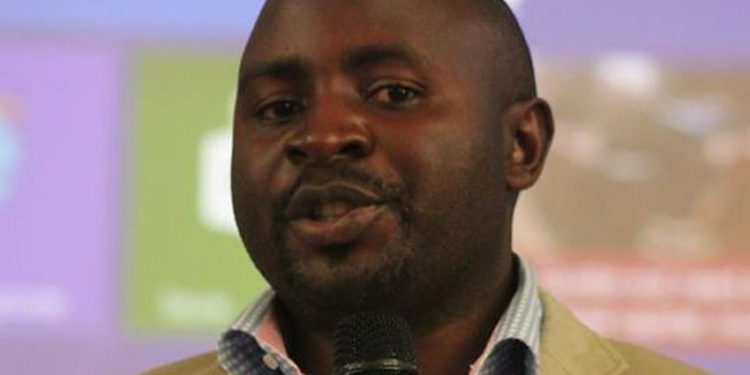There is a chilling thread on Twitter of somebody detailing their experience of freeing the Sudanese capital Khartoum to Egypt to seek refuge as war intensifies in one of Africa’s leading gold exporters and a significant market for Uganda’s coffee and tea.
The current crisis in Sudan has been years in making and can be traced to the war in the Darfur region, which led to Omar al Bashir being indicted by the international criminal court. Before Bashir could be arrested to stand trial, civilians tired of three decades of dictatorship rose against him leading to a coup by his generals.
In a bid to entrench himself for a life presidency, Bashir had led to the formation of a militia that annihilated people in Darfur that was commonly known as the Janjaweed, a ragtag group of youth with a license to maim and kill. It worked for Bashir for a while but more so for a half-educated camel trader or raider or bandit depending on which reports you read known as Mohamed Hamdan Dagalo alias Hemedti (little Mohammed).
As Bashir’s executioner in chief of those who opposed his misrule, Hemedti ended up with a militia of around 170,000 fighters (the Sudanese army is believed to have 120,000 soldiers). For his atrocities, Bashir paid him by handing over some of Sudan’s largest gold mines. With money and Bashir’s backing, Hemedti created a force that has even sent some of it force as mercenaries to wars in Yemen thereby endearing himself to Saudi Arabia and UAE.
With access to money and guns, Hemedti forced a vulnerable Bashir to make him a general in the army while keeping the Janjaweed to himself. He would rename them the Rapid Support Force (RSF) in 2013, a paramilitary group at his command. When civilians rose against Bashir in 2019, he expected Hemedti to act as he had always done before. Hemedti instead saw an opportunity for something bigger than he had ever imagined — a chance to lead Sudan. So he teamed up with Gen Abdel Fattah al-Burhan and overthrew his mentor and benefactor and in the meantime have civilians lead. Burhan and Hemedti would soon overthrow the civilians and entrench themselves. Burhan as the leader and Hemedti as his deputy.
It was a marriage of convenience. Burhan and the tribes along the Nile River that have traditionally ruled Sudan never trusted Hemedti who is considered an outsider. He is believed to have been born in the mid 1970s in Darfur (though some believe he was born in Chad) in camel trading tribes. Hemedti isn’t a fool. He knew Burhan’s schemes against him and the power struggle led to the escalation of hostilities among the Sudanese army and the RSF. More than 500 civilians have reportedly been killed.
A similar story is raging in almost every part of Africa, perhaps the world’s richest continent due to natural resources endowments. Gold in Sudan is now a source of arms that are being used to kill each other instead of eliminating poverty. It is the same story in the Democratic Republic of Congo (DRC). Ethiopians don’t trust each other and have been cutting each other’s throats until very recently. Violence erupts at will in South Sudan. In Nigeria, Africa’s largest economy, kids can’t be sure they can attend school without Boko Haram kidnapping them.
South Africa, the third largest economy on the continent is collapsing under the weight of corruption and now load shedding is the order of the day. In Kenya, civilians burn themselves in the name of stolen elections just like Uganda has been over the years. If there is no violent crackdown on protestors, ministers are stealing cheap iron sheets meant for the poor.
Cameroon is led by senile president who lives in Europe. Nigeria just elected another! There is hardly any part of Africa without its troubles or where trouble isn’t brewing because leaders are simply out of touch.
Like we have seen with Bashir or Gaddafi before him, African leaders only build patronage systems instead of national institutions. Such systems are so vulnerable that they eventually lead to the turmoils like in Sudan and Libya.
Unless you are a charlatan arms dealer, you think twice of investing in Africa. The Sudanese economy had never recovered from the protests of 2019 and Covid-19 and now its sky is filled with smoke from burning human flesh. South Sudan can’t export its crude oil now. Uganda’s coffee will get affected. Airlines flying into East Africa from Europe have already increased the tickets as avoiding the Sudanese airspace means longer journeys leading to increased costs of doing business.
Why can’t Africa’s leaders think long term and beyond themselves? Can’t Burhan and Hemedti learn from the experiences of Bashir? That they too can end up in prison and their life presidency dreams curtailed? Should Sudan end with them? How is sharing power or handing it over to civilians be so difficult? To what end will they enjoy their ill-gotten wealth when their country is burning?
The writer is a communication and visibility consultant. djjuuko@gmail.com
Do you have a story in your community or an opinion to share with us: Email us at editorial@watchdoguganda.com












